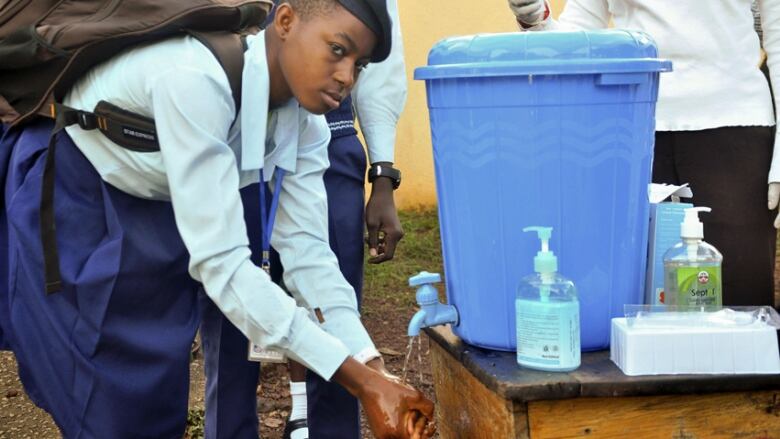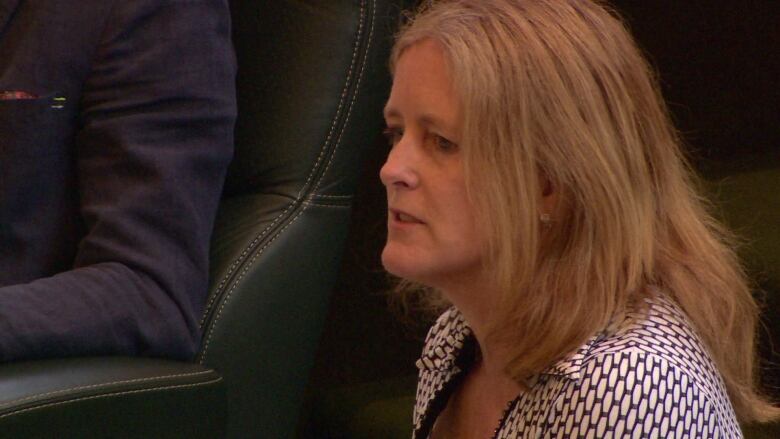Eilish Cleary helps fight Ebola's spread in Nigeria
New Brunswick's chief medical officer of health says she's learning valuable lessons about the disease

New Brunswick's chief medical officer of health is helping in the fight against the spread of Ebola in western Africa and she hopes to use some of the knowledge shes gaining in addressing public health concerns when she returns home.
Dr. Eilish Cleary is working with the World Health Organization in Lagos, Nigeria.
Cleary said her days are long, as she works on containing an outbreak in the city of more than 20million people and helping to detect new cases of Ebola.
She says one mansuffering from Ebola arrived in the city by air and twenty people were infected, many of them health care workers.
As of Sept. 26, Nigeria has had 20 cases of Ebola and eight deaths.
As part of her work, Cleary has been interviewing the survivors of that outbreak which she says is now under control.
"The outbreak could have been a lot worse here."
Cleary says it's an opportunity to learn more about the disease and a common theme has emerged from her interviews with those who have recovered.
"What they're telling me, and it's almost universal, they believethat they survived because they believed that they could and would survive she said.

Cleary said she spoke with one nurse who recovered from Ebola, after witnessing some of her colleagues die, and others recover.
She described how she made herself drink enough oral rehydration solution, Cleary said.
She said she hated taking it because it made her feel sick but she drank six, seven litres of it every day because she knew it was what would make her better."
The WHO reported on Wednesday the virus is thought to have made 7,178 people sick, mainly in in Sierra Leone, Guinea and Liberia, and of those cases, 3,338 people have died.
Cleary said she's glad to be able to work in Nigeria and she doesn't worry about the threat of Ebola because she's taking proper precautions.
The Ebola virus, which first appeared in 1976, produces a violent hemorrhagic fever that leads to internal and external bleeding. The infection is transmitted by direct contact with blood, bodilyfluidsand tissues of infected people or animals.
Ebola symptoms can include fever, muscle pain, vomiting and bleeding, and can appear as long as 21 days after exposure to the virus. The disease is not contagious until symptoms begin.
While she is in western Africa, New Brunswicks chief medical officer of health said she's gaining valuable experience that can help her when she returns later this year.
Cleary said, while the knowledge is specific to Ebola, it can also help in other public health cases.
"Having practical experience in dealing with this disease will help me approach it if we did have a problem of this disease in New Brunswick or in Canada," she said.
"But it will also contribute to other diseases because the basics of contact patient management and surveillance, you know, they apply everywhere."
Cleary will return to Canada in December.












_(720p).jpg)


 OFFICIAL HD MUSIC VIDEO.jpg)
.jpg)



























































































